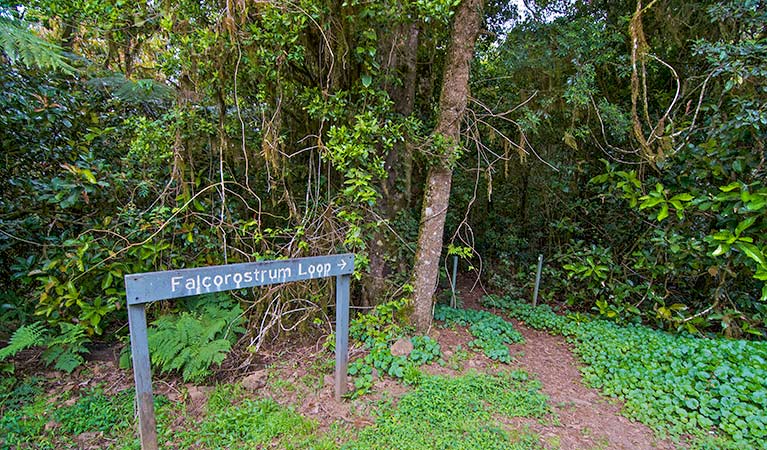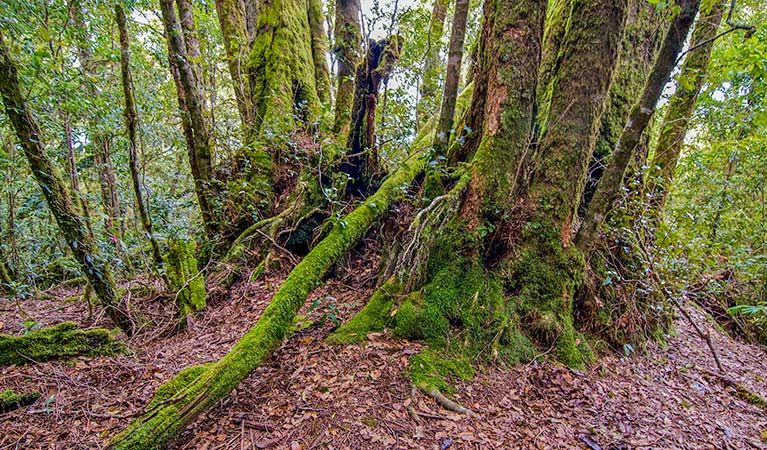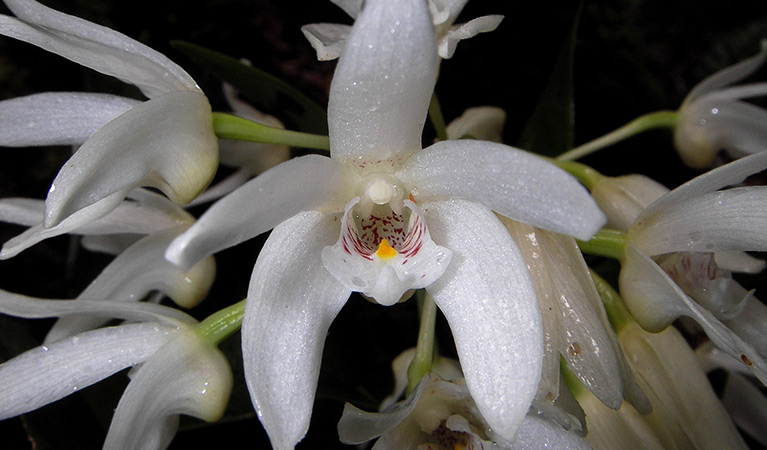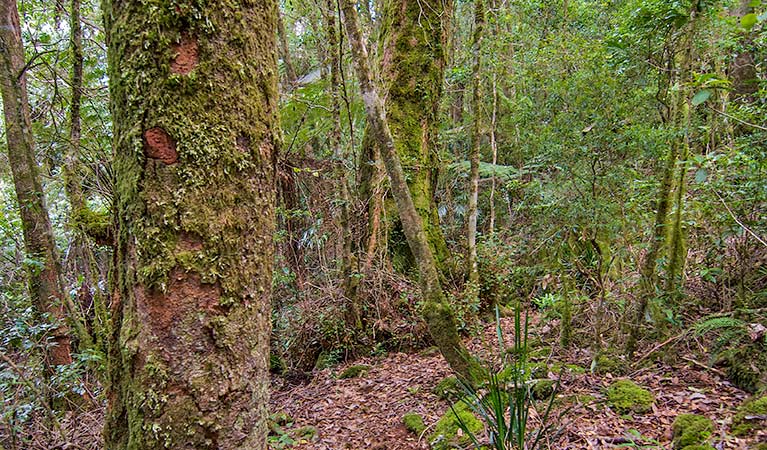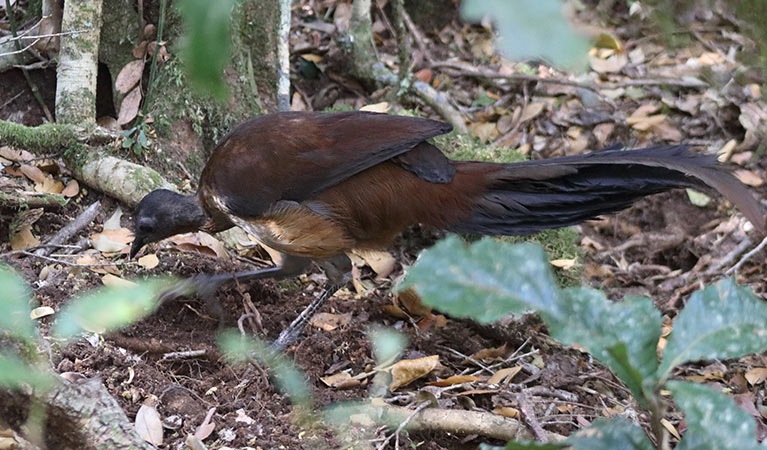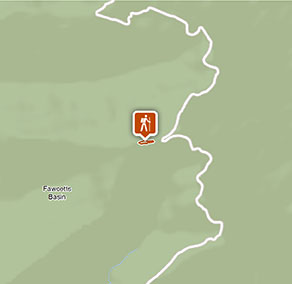Overview
Falcorostrum loop walking track, in Border Ranges National Park, is a short easy walk through stands of ancient Antarctic beech trees within cool temperate rainforest where Albert’s lyrebirds live.
- Where
- Border Ranges National Park in North Coast
- Accessibility
- Hard
- Distance
- 0.65km loop
- Time suggested
- 15 - 30min
- Grade
- Grade 3
- Entry fees
- Park entry fees apply
- What to
bring - Hat, sunscreen, drinking water
- Please note
- It's a good idea to fill your fuel tank before heading out to the park as the closest service stations are Kyogle, Woodenbong, Nimbin and Rathdowney.
- The weather in the area can be extreme and unpredictable, so please ensure you're well-prepared for your visit.
- Remember to take your binoculars if you want to go birdwatching
Falcorostrum loop walking track starts from Bar Mountain picnic area, and winds its way through one of the largest stands of beech in Border Ranges National Park.
The best place to see ancient Antarctic beech trees is at the highest accessible point of the park. It is at the same elevation as the summit of Wollumbin/Mount Warning. Some of these trees may even be 2,000 years old, with falcorostrum orchids clinging to their trunks and branches. This is the only place these orchids are found.
The cool temperate rainforest this track takes you through is one of only a few pockets in the park. Albert’s lyrebird is common to this area and can be seen scratching through leaf litter amidst the beech. Bring along your binoculars for a closer look. You’re most likely to spot one in the early morning or on an overcast day. Listen out for lyrebird display songs which could either be their own or the mimicked sounds of other species.
You might also like
-

Border Ranges 360 experiences
Discover some of the rare and remarkable animals, plants and habitats that make Border Ranges National Park special, with our interactive 360-degree images.
Big name, big aims
More than 350 Assets of Intergenerational Significance (AIS) areas have been declared in our parks as home to the most threatened animal and plant habitat, giving them extra special protections.
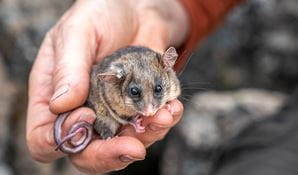
Subscribe to Naturescapes
Subscribe to our Naturescapes e-newsletter which is packed with the latest information, experiences and events in NSW national parks. Your next park adventure starts here.
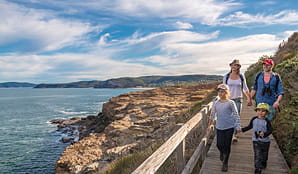
General enquiries
- National Parks Contact Centre
- 7am to 7pm daily
- 1300 072 757 (13000 PARKS) for the cost of a local call within Australia excluding mobiles
- parks.info@environment.nsw.gov.au
Operated by
- Kyogle office
- Monday to Friday, 8.30am to 4.30pm.
- 02 6632 0000
- npws.richmondriver@environment.nsw.gov.au
- 136 Summerland Way, Kyogle NSW 2474
Park info
- in Border Ranges National Park in the North Coast region
Border Ranges National Park is always open but may have to close at times due to poor weather or fire danger.
-
Park entry fees:
$8 per vehicle per day.
Buy annual pass

